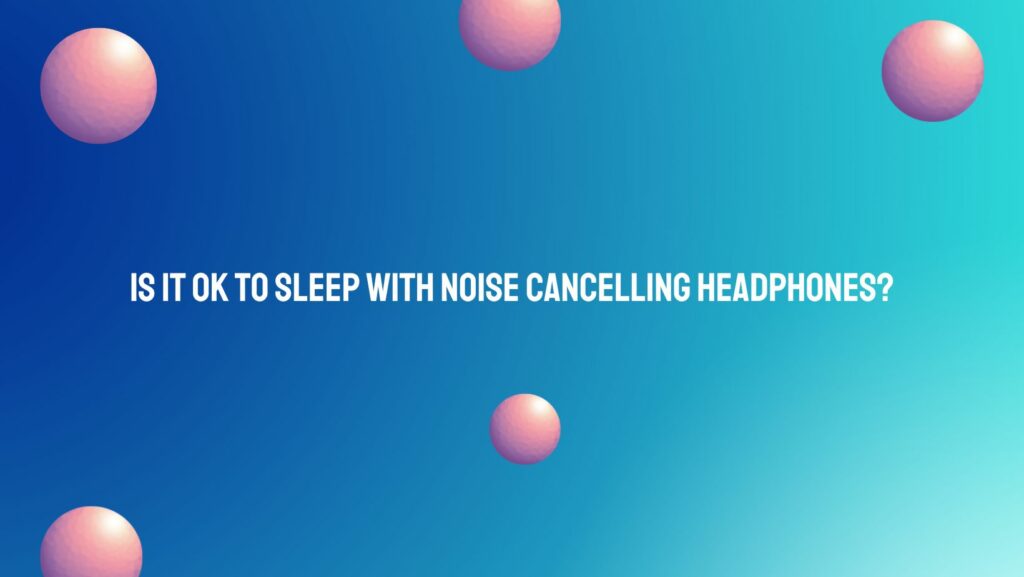In the quest for a peaceful night’s sleep, many individuals seek refuge from the clamor of the outside world by turning to noise-canceling headphones as a potential solution. These advanced devices promise to block out unwanted sounds and create a tranquil environment conducive to restful slumber. However, the question arises: Is it okay to sleep with noise-canceling headphones?
The allure of sleeping with noise-canceling headphones lies in the promise of uninterrupted tranquility and the elimination of disruptive noises that can interfere with sleep. Whether it’s the hum of traffic, the chatter of neighbors, or the snoring of a partner, noise-canceling headphones offer the possibility of creating a personalized cocoon of silence, allowing individuals to drift off into the realm of dreams undisturbed.
One of the primary benefits of sleeping with noise-canceling headphones is the potential improvement in sleep quality. By effectively blocking out external noises, these headphones can help individuals achieve deeper, more restorative sleep cycles, leading to increased feelings of refreshment and vitality upon waking. Moreover, for individuals who live in noisy environments or struggle with insomnia, noise-canceling headphones can provide a sense of sanctuary and control over their sleep environment.
However, beneath the surface of this seemingly idyllic solution lie considerations of comfort, safety, and the potential impact on auditory health. While noise-canceling headphones excel at blocking out external noises, they may also pose certain risks and challenges when used during sleep.
One primary concern is the potential discomfort and pressure exerted by noise-canceling headphones on the ears and surrounding areas. Over-the-ear headphones, in particular, may cause soreness, discomfort, and pressure points during extended periods of wear, potentially disrupting sleep and leading to discomfort upon waking. Additionally, the presence of wires or cables associated with noise-canceling headphones poses a risk of entanglement during sleep, which can lead to discomfort or safety hazards.
Moreover, the use of noise-canceling headphones during sleep raises questions about the potential impact on auditory health. While noise-canceling technology effectively blocks out external noises, it also introduces the risk of overexposure to sounds at higher volumes, particularly if individuals increase the volume to compensate for ambient noise. Prolonged exposure to high volume levels, even during sleep, can increase the risk of auditory damage and contribute to temporary or permanent hearing loss over time.
In conclusion, while sleeping with noise-canceling headphones may offer potential benefits in terms of improving sleep quality and creating a serene sleep environment, it’s essential to approach this practice with caution and mindfulness. Understanding the potential risks and considerations associated with sleeping with noise-canceling headphones can help individuals make informed decisions about their sleep routines and prioritize both comfort and auditory health. Ultimately, finding the right balance between tranquility and safety is key to achieving restful sleep and promoting overall well-being.


